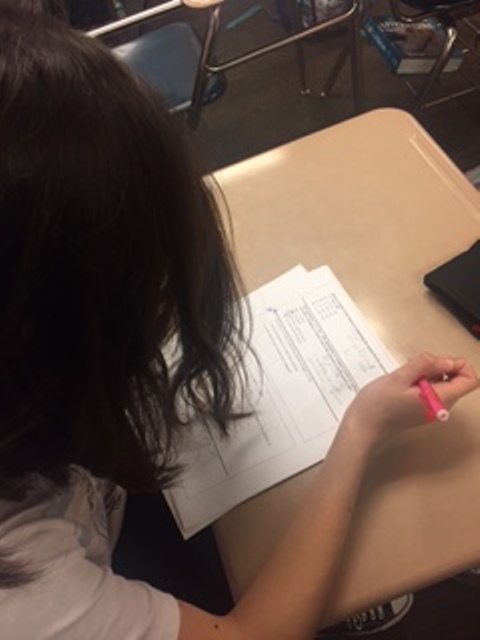The EOCs are Ineffective and Here’s Why
“These test questions were just made up, and tragically, incomprehensibly, kids’ futures and the evaluations of their teachers will be based on their ability to guess the so-called correct answer to made up questions” – Sara Holbrook, Poet
April 26, 2017
It is the most stressful time of the year for students all over the United States: end of course (EOC) state testing. Since elementary school, all students have been forced to take a superfluously long test in order to prove to the state that they learned and met the standards taught throughout the school year. They sit in the same classroom for several hours at a time while staring at black and white paper, a bubble sheet and a packet full of questions. This type of a test puts tremendous pressure and stress on students of even the highest test taking skills. While some teachers claim how the test is only to see exactly how much one has learned, there is no hard evidence that the EOC accurately proves the students’ knowledge. To assume the notion that tests are compatible with every student is wrong. Kids with test anxiety, while they may be smart, are not seen as smart as other students by the state government just because they did not exceed the math and English sections on the test.
Huge tests suppress creativity in kids who will need to think on their own in their careers. By giving students a long series of questions with four possible answers each and only one right way to solve each problem, test makers are turning a beautifully colored world to something so black and white. What will happen when students graduate and they are no longer given four options to every question life throws at them? The adjustment to life after standardized testing is bound to be much more difficult for kids who have always grown up being tested on memorization rather than actually understanding the topic. Memorization is only short term, so chances are that students most likely will not even remember what they learned in ninth grade science. State testing in no way truly determines if the child can understand and retain knowledge from throughout the school year.
Sara Holbrook, a poet from Texas revealed the truth about her poems in standardized testing. The questions regarding her poems that had showed on the very state test baffled the author. She discovered that she could not even answer some of the questions about her own poems. There was a question asking about the stanzas in the poem. Holbrook’s only response was that she “just put that stanza break in there because when [she] read it out loud, [she] paused there.” The standardized testing has a habit of trying to find deeper meanings in writings or poems that were simply just coincidental or spur-of-the-moment feelings. If a respected and talented poet could not even comprehend what some of the questions meant, how are kids supposed to?
To top it all off, the EOC counts for 20% of the student’s course average. That can be the difference between passing and failing for some students or having an A to having a B. Though the test could help some students, say one was having an off-day and completely bombed the test. The rest of the year they made straight A’s, but just this once they made a B or a C. By using this one test as such a big portion of the child’s grade, their hard work from the rest of the school year is diminished into a worse grade or brought down to a whole different letter grade because of just one off-day. See, there is no way to assure that a student was not mentally stable enough to take a large test or preoccupied with a bigger issue at hand therefore resulting in a grade they would not have made in any other circumstance.
After asking a total of 30 North Forsyth High School students, about 87% of them agreed that the EOC is useless and unfair to students who do not test well. Just the same as all students learn differently, all students share how well and what they have learned differently. Some do it best by simply doing and applying it to their everyday lives, while others may like to be tested with paper and pencil. EOC’s are not for everyone, so it makes no sense that the school system would treat everyone the same way in the aspect of testing.




